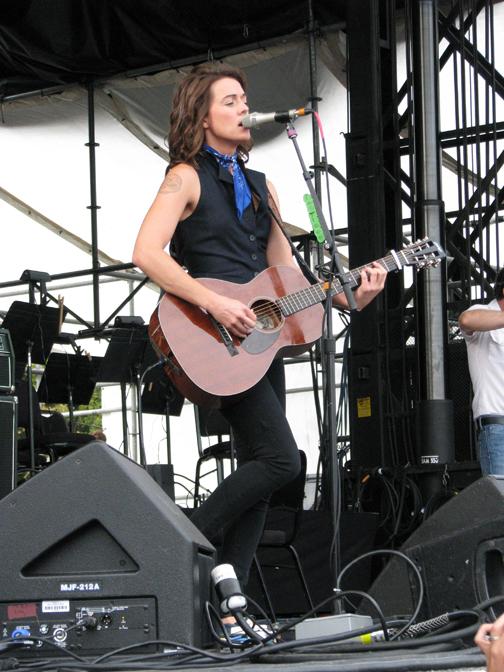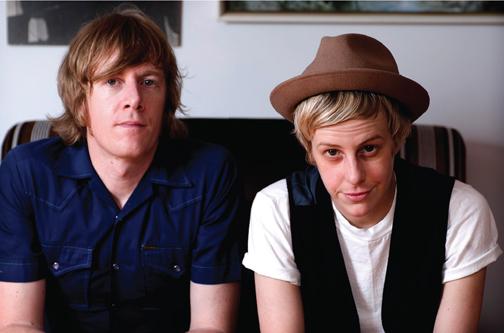Wait a minute… Can we assume that? Is it rude to assume that? In all reality you should never assume a person’s sexuality based on the music he or she likes, but the truth is, we make these assumptions all the time. Case in point, when my friend said he liked Lady Gaga and Madonna, should I not have assumed he was gay? Okay, well, he isn’t, and afterwards I felt like a pretty big asshole.
Another one of my friends mentioned that she liked Tegan and Sara, when one of their songs happened to be playing. Almost immediately, however, she followed that statement with, “But I’m not gay. I only like them because my gay roommate freshman year listened to them.” Why did she feel the need to assert that she was not gay? It’s because she felt trapped in a lesbian music stereotype.
What is lesbian music? If you’re looking to pin down the musical artists all lesbians listen to, stop trying. Not all lesbians like the same music, just like all straight people don’t like the same music. Yet, lesbians are associated with specific artists. Think Tegan and Sara, Brandi Carlile, Indigo Girls, etc. The real question is: why are these artists stereotyped as lesbian music? It could be the music, the image, or the fact that the artist is gay, or maybe it’s all those tattoos.
Along with musical tastes, lesbians are often falsely associated with a certain image. Flannel, short haircuts, backward hats, and tattoos are just a few hallmarks. Many of these musicians also fall into image stereotypes. Whereas the typical female pop artist wears tight-fitting clothing and tries to ‘sexify’ her image, bands associated with lesbians usually fall into the exact opposite category.
There are numerous bands and musicians that are typically assumed to have lesbian followers: Kate Bush, Tracy Chapman, Ani DiFranco, Uh Huh Her, Girlyman, An Horse, Missy Higgins, k.d. lang, Sia, and pretty much anyone who ever played at Lilith Fair. The one thing these artists have in common is that they have, for the most part, female lead vocalists who do not portray the typical straight pop-star sex image. The big gaping hole in this stereotype is any male singer or male-fronted band. Of course, gay girls can like the aforementioned, but they are never included as part of the stereotype.
It would make sense for lesbians to like lesbian artists. The whole girl-with-guitar thing, like Sara Bareilles, is also perceived as attractive to gay girls. However, not all gay girls like these bands, and we sometimes neglect the girls who do not like the folk/acoustic genres. At any rate, we often cannot pinpoint why we like the bands we do. Sometimes it’s the person singing, sometimes it’s the music, or sometimes it’s the lyrics. People like the music they like for a variety of reasons, and we can’t assume it’s exclusively because of their sexuality. So please don’t.






















































